Zoos are fascinating places because where else will you see animals from multiple continents just hanging out, next to a person in a simple, outdoor uniform sweeping. People do love to see and get close to wildlife, but it can be almost just as fascinating to learn the logistics of how these places work in the background.
We’ve gathered interesting, wild and sometimes downright unhinged stories from zookeepers on what it’s actually like to work among animals. So get comfortable as you scroll through, upvote your favorites and be sure to share your own thoughts and experiences in the comments down below.
#1
Ok, as is tradition, not a full zookeeper buuut…
When I was a teenager in the 90s, I did volunteer work at the Oakland zoo. There weren’t many of us, so we got to choose where we helped out, so I chose to work with Bhakti, the 32ish year old Bengal Tiger. Nearly oldest living in captivity when he finally passed. I chose him because he was beautiful, and he always seemed lonely.
He had pacing syndrome hardcore, so his entire paddock was green and lush except for the paths along the outer fence line and one or two diagonals he used to get into and out of his night cage.
The keepers did their best with him, but had clearly written him off. He was grumpy, unsocial, hid from the public, swiped and hissed at keepers, and ignored all of the enrichment toys and food put out to keep him mobile.
They had a few young Siberians in quarantine already waiting to be put on display, they just had to wait for him to pass and the stubborn old cat lived to spite them.
He always started the morning by pacing his fence line, so I started pacing with him. No eye contact, no sounds, just walking back and forth for an hour or two.
After a couple weeks, he started chuffing at me when I arrived, so I learned how to mimic it to say hi back.
Another month, and he would actually break his pacing circuit to walk with me, jogging his ancient arthritic body from wherever he was across the green sections to match me.
Poor guy just needed a friend. I still get a bit misty eyed thinking about him. Just a lonely old cat who had to spend the last years of his life basically alone.
Don’t get me wrong though, the keepers really did do their best, but they couldn’t spend all day with him like I could. They had many duties and creatures to care for and he had a really steep barrier to entry as a friend.
As grumpy as he was, I still think he was good people.
Image source: Bartholomew_Lane
#2
I spoke to a zoo keeper at the national zoon in DC. We where watching another keeper inside the cheetah enclosure and I asked him about the danger involved. He said a cheetah is harmless to an adult human because it only hunts smaller creatures. I asked which creature was the worst to go in with, expecting hippo, elephant or croc as an answer. Without hesitating he said “zebras” then leaned close and whispered “They are the biggest jerks. They will bite and kick for no reason.” I still think it’s hilarious that off all the teeth and claws out there, it’s stripped donkey horses that are the worst.

Image source: anon, Pavel Togobitskiy/unsplash
#3
When you’re cleaning underneath the perches, parrots will wait for you to look up before relieving themselves. They have a good aim. Don’t look up.

Image source: BiteyParrots, David Phillips/unsplash
#4
The amount of injuries you can just casually pick up from animals is crazy. I’ve been kicked in the chest by a kangaroo, attacked by a wombat and a bat, bitten by a monitor lizard and a carpet python, had a rhino charge at me, and been scratched by a macaque. My old boss has this bad scar from a snow leopard attack, and this guy I work with now has his entire left forearm mangled from an orangutan attack.
It also shocks you how….dumb people can be. There can be a huge sign that says “Hello! I’m an echidna, NOT a porcupine!” and people will still ask if that’s a baby porcupine.
You get used to the same jokes every day. Like when you’re cleaning up the outside enclosures (in view of the guests), someone will eventually say “Oh what a strange animal! I wonder what kind it is!” in regards to seeing a human.
I have no qualms about picking up animal feces bare-handed. I know what my animals have been eating, I know what’s in their digestive systems, and to me that makes it more bearable. I can have long discussions about it consistency with my co workers, and in fact, that’s what a lot of general health talks are about. “Homer’s stool was a little looser than normal this morning – I wonder if something happened overnight to stress him out”
You get used to being stinky. I currently work 8+ hours with primates daily and I feel awful for the people who share a space with me when I go to the gym directly after work.
ORANGUTAN EDIT: Orangutans are NOT the gentle giants you think they are. All apes, and I mean all apes, have the capacity to maim/disfigure/end you if you annoy them enough. Don’t look primates directly in the eye for an extended period of time, don’t smile at primates, and for the love of god don’t invade their personal space.
MORE INJURIES EDIT: Had a piercing ripped out by a macaw, fingers and hands torn up from handling/training conures and other large parrots, quite a few nasty bites from small mammals (hamsters, gerbils, ferrets, etc.). A few injuries from horses but nothing out of the ordinary.

Image source: adamandatium, A. C./unsplash
#5
Rhinos may look super intimidating, and they can hurt you, but really they just act like big dogs. They love being scratched and will eat all the fruit out of your hand!

Image source: battlegato, Marshall Ma/unsplash
#6
I’m a small animal vet now but worked in a zoo before vet school. Zoos are one of the biggest purchasers of Calvin Klein’s Obsession cologne. The cologne has animal musk in it and it drives the big cats wild. We used to spray it on everything.
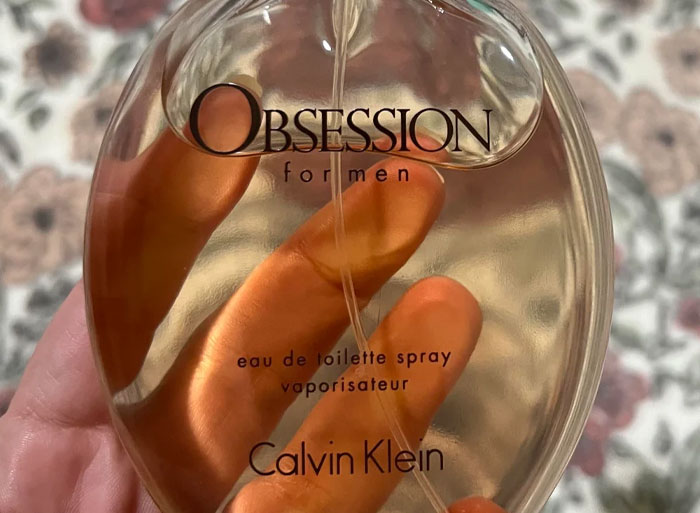
Image source: LigamentumArteriosum, shortifiable/reddit
#7
I worked with large tortoises. We had these 5-gallon buckets for cleaning out of enclosures and other buckets for feeding them fresh grass we cut. The first day on the job I took both buckets into the pen and started by dumping out the grass. Then I went around to clean. I heard this awful loud grunting and something breaking. One of the 300 lb males tried to bang the bucket in front of visitors and flattened it. He would even follow me around just in case I might leave more innocent buckets unattended.

Image source: DrteethDDS, Andrea Konigsmann/unsplash
#8
Used to work at a zoo, cold weather makes the animals more active so go on a chilly day or first thing in the morning to see the best show from the animals.
Also, those free roaming peacocks are really stupid and sometimes go in the lions exhibit and get torn up.
Edit: because of lots of questions about where, this was the Tautphaus Park Zoo in Idaho.

Image source: MapleTopLibrary, Yomex Owo/unsplash
#9
The poor penguin keepers can never quite get rid of the miasma of fish that envelopes them. As for me, the stinkiest job I ever had to do was cleaning out the duck ponds. Managed to empty a whole train carriage that evening, even though I had changed and my work clothes were double-bagged.
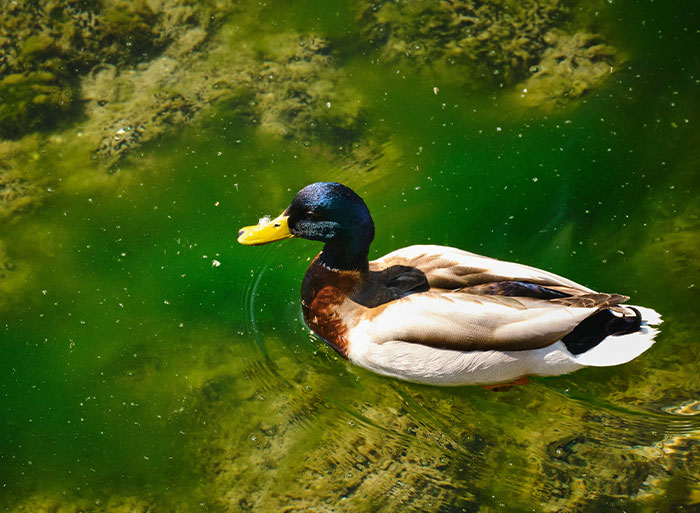
Image source: ShadyElmm, Rolf Schmidbauer/unsplash
#10
Our lions will urinate on guests if they get too close, which is always funny to see. Not so funny to smell.

Image source: epshuche, Soheil Jalili/unsplash
#11
I used to volunteer weekly at a large zoo and at one point management started doing monthly dangerous animal escape drills. Someone would run around in a lion onesie and we’d have to react as if one of the large animals had escaped. It was hilarious but one of the funniest things I was taught was that if an incident did occur you have to tell the nearby guests to get inside only once. If after that they refuse to follow you indoors (the protocol was to hole up in the large activity centre buildings) , you’re to leave them there, go inside yourself and lock the doors. It makes sense because people can be very stupid and you don’t want to risk everyone’s lives because of one Karen, but it amused me no end that the protocol was to just let them get mauled.

Image source: thebourgeoisiee, Dheepak Mahesh/unsplash
#12
The amount of idiots who complain to management about paying to go to the zoo, then not seeing any animals is unreal! Like, what do you want us to do? Go in there with sticks and chase them out of their hidey-holes?! Sorry buddy, not going to happen.
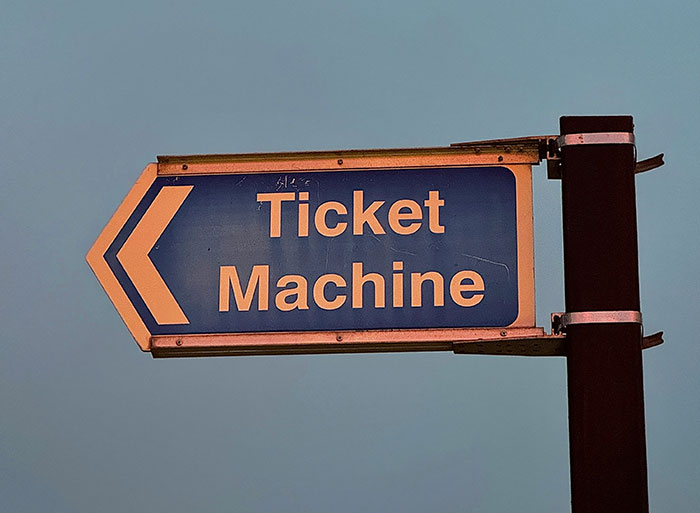
Image source: ShadyElmm, Kyle Richards/unsplash
#13
I volunteer at an aqurium and the people always ask about whether the sharks that are in with the fish ever eat the fish officially we say, “we keep them well fed enough that they don’t”, but on more then one morning on my initial walk around I have found remains of fish that definitely weren’t feed fish. On a particularly memorable occasion I found the head of a large porgy just sitting on the bottom. A diver went in and got it before guests arrived.
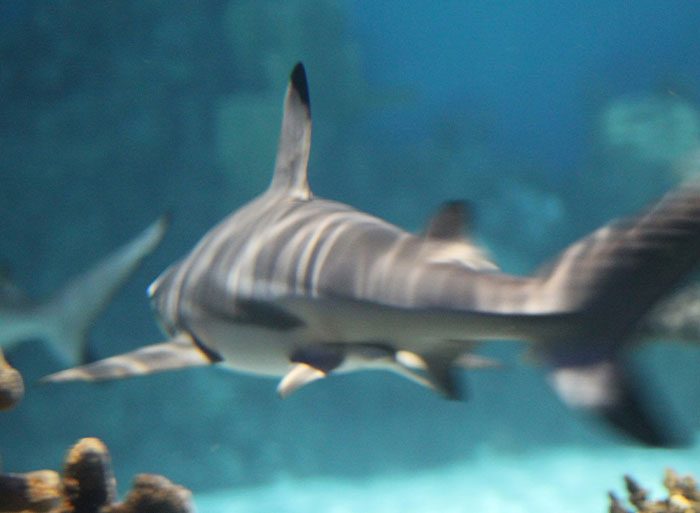
Image source: _Fun_Employed_, Lexy Taylor/unsplash
#14
Some people like to bring fruit and stuff to throw into the animals cages, even though they’re not suppose to. If you’re around and someone throws a pineapple into the gorilla or chimpanzee dens, gtfo. They will throw that thing full blast at someone. I saw a man get hit full force right in the side of the head and he was lights out. Pineapple exploded on impact. Paramedics came and everything.

Image source: Sedintwinz, Todd Morris/unsplash
#15
My wife was a zookeeper and I used to volunteer there a lot.
1) The animal that was was least scary was a cheetah. They were pretty cool ignoring everything as long as they had food. The most scary to me were the giraffes. Back then you went into the enclosure with them and they’d sometimes swing their heads around and try to hit you just to be pricks. You had to be careful.
2) The job would actually be fantastic if they didn’t let people into the zoo.

Image source: FarwellRob, Getty Images/unsplash
#16
The path to being a keeper is rough. It can literally start with working a concession stand at a zoo with a college degree making minimum wage, and the path to mobility being talking to the other keepers to the point they’ll let you clean the cage of the animals they keep. Do that a few years and hope that position opens, not necessarily one that you want, but any, because getting in the door is HARD, high demand, low supply. It is a job where you really need to love the work and be OK not making much money.
Source: Friend followed this path at a zoo that is known the world over.

Image source: pdhot65ton, Yue Yin/unsplash
#17
Lions know fully well that they can’t get through the glass. They do that just to get attention.

Image source: WF6i, Tom Spross/unsplash
#18
There’s no “dirty” secrets as far as shady practices or anything.
But if you mean literally…oh yeah, it’s dirty.
I cleaned up over 100 pounds of cat feces just today, and even after I showered my husband still says I smell overwhelmingly of cat pee.
Image source: yockl
#19
I had to draft the zoo’s contingency plan for all sorts of emergencies. Flood, tornado, extreme heat, war or attacks, you name it. The plan included a prioritized list of which animals in the collection we would have to sacrifice to feed to the other animals in extreme situations. I literally created a zoo food chain. Humans were left off the list entirely.
Image source: dogsfrogsmonologues
#20
I did co-op at one for two weeks. The Sumatran tigers had a nice enclosure but the overnight enclosure was very small and depressing. I would walk around the outdoor enclosure hiding meatballs while they were in there, and I was always scared someone would forget I’m out there. There’s nothing like that smell of tiger urine, as soon as I first smelled it it’s like an instinct kicked in and all the hairs on my body raised as if I just knew there was something close that could eat me.
Also, so many people drop money beneath the walkways, I found a few $5.00 bills.
Image source: anon
#21
If you work with the animals there’s a good chance you’ll not be able to have any kind of social life, between the long hours/weekends and the stench.
I’ve been kicked out of stores after work because I apparently stunk way worse than I thought I did – even after scrubbing off!
And I’m around animals every day, but I still can’t stand when otter / sealion keepers are around me in “all-hands” meetings. The rotten fish + ferrety otter smell combo is a gagger. Meanwhile, I work with apes, and they say that I smell like I haven’t showered in a decade (again…even after I shower).

Image source: bindobub, MARIOLA GROBELSKA/unsplash
#22
Not quite a zookeeper but in training to be one!
The zebras and Przewalski’s horses are ruthless and will tear apart any unfortunate wild kangaroo that dares break into an enclosure. They love the thrill of the chase.
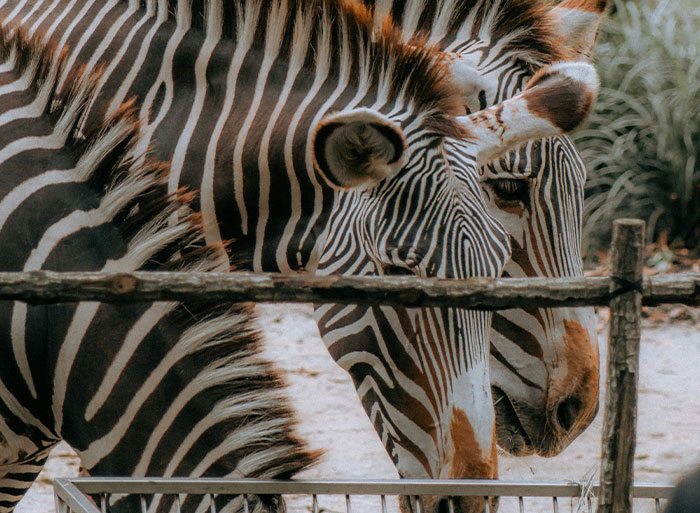
Image source: NutkaseCreates, Ethan Chan/unsplash
#23
I worked in two completely different departments (elephants and neonates), but the drama between keepers was insane in both. Like, attempted crime level insane.
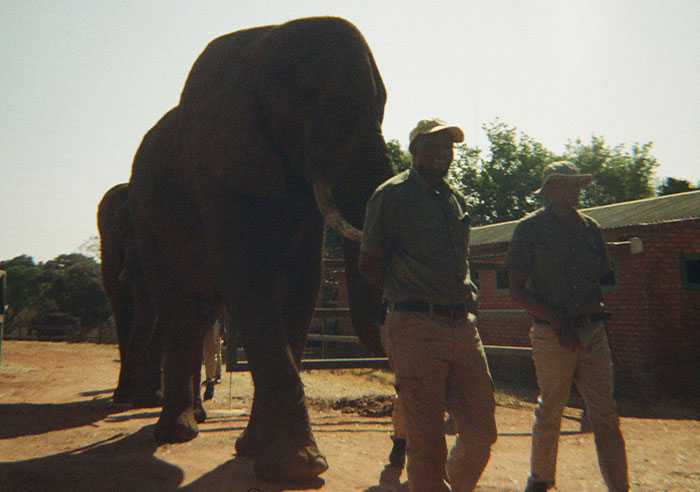
Image source: Ginger_Spinner, Daniel Silva/unsplash
#24
The most dangerous/feared animal in case of an escape is not, as you may think, lions, tigers or other large carnivores. It’s the chimps. Those things will rip your arm off and beat you with the bloody end as soon as look at you.
Image source: ShadyElmm
#25
If you have worked with them then you probably already know, but one swift kick from an ostrich can literally disembowel you. Every time I see a video of someone getting up close to one, I can’t help but cringe. One of our head keepers had actually lost part of their ear to one.
Image source: WickedPuffin
#26
What do you want to really know?
Zookeepers are overworked, underpaid, and are constantly in a battle to prove their worth to seemingly everyone. We spend day and night (and sometimes overnight) caring for our animals often regardless of our personal lives because those animals deserve the best life possible and at the end of the day the most a****d thing at the zoo is the Zookeepers themselves.
I had a guest tell me one day that they thought the gorilla would be happier dead in the wild than in his habitat while also knowing absolutely nothing about what is impacting gorillas in the wild. I’ve had parents point at me cleaning a habitat and tell their children “stay in school or you’ll end up like her”. In fact I’d say a decent percentage of guests in my 10+ years were extremely surprised to hear most Zookeepers have degrees/higher education.
Zoos need our support at the end of the day as they provide education and experience that can build empathy. We have to teach people to care and it’s hard to when sometimes things aren’t affecting the immediate world around us but is instead affecting someone else’s across the globe. Why is it important to recycle your old cell phones? It will reduce the need to mine for coltan, a mineral used in cell phones that can be recaptured in the recycling process. Less coltan mining = less loss of habitat for gorillas among other animals. Do you check the labels of items you buy for sustainable Palm oil? If not, you could be helping add to the destruction of orangutan habitat. Our actions matter, our choices matter, and we have to teach that.
Edit: Thanks for my first gold. I actually left my job of 12 years over a year ago because it was physically and mentally draining me too much. I miss it terribly but know it’s what is best for me.
Image source: IHeardYouHaveCats
#27
Late to the party, but I wanted to mention all the older animals. Sometimes people don’t realize there are older critters who have health issues. A lot of older fish we had were kept in the back tanks away from view because people assumed normal old fish issues were a result of poor husbandry and would get upset if they were on display. Imagine having your 17 year old incontinent dog in a zoo, people would think it looks emaciated and pathetic.
Along the same lines, zoos have improved significantly in terms of animal husbandry over the years, but a lot of older animals have been in zoos since before these changes occured. I remember working with a group of chimps and one of the old chimps would masturbate while staring at me as I cleaned the outside of the enclosure. I had to remember this guy joined the zoo at a time when they would dress chimps up in kids clothes and make them have tea parties and s**t. He had some mental issues that weren’t his fault. Thankfully that troop has gotten better housing and care and has now started acting more normally, even reproducing with their own troop members and acting like real apes should.
Image source: fromtheoven
#28
Zookeepers are expected to have degrees and like 5 years of practical experience before they’re employed and then they’re paid basically minimum wage.
Image source: Jais44
#29
Zookeepers can only stand to hang out with zookeepers of the same kind of animal because of the smell. No matter how much you scrub or change, the smell clings. Primate keepers smell like they haven’t bathed in a decade, snake keepers smell cloyingly unnerving, and sealion people make you gag from the fish smell.
Image source: themajorfall
#30
Former coworker got a job at the aquarium. He was basically the night watchman, making sure nothing exploded when the aquarium was closed. The thing is, he can’t actually do anything about it.
A ray jumped out of the open touch pool, so he gently picked it up and set it back in the tank. No harm done, ray is fine. He got chewed out for handling an animal. Policy is to call the expert handler for that department and have them come in, to avoid any liability and whatnot. By the time you get them to pick up the phone at 3 am, get up, and drive into the city it’ll be like forty minutes *at best*. Assuming they came in at all.
So his job was really to just stand there staring as the animal suffocated.
He ended up quitting when he tried to call out sick because he had the flu so bad he literally couldn’t stand up straight and part of the job was to walk the narrow hanging walkway over the largest tank in the world, which includes sharks, alone, at night… and they told him to come in anyway.

Image source: RhynoD, Markus Kammermann/unsplash
#31
Partner was a zookeeper in Dallas. Safety protocols for when a large, dangerous animal escapes its enclosure dictate that you lock yourself in whatever room you can get to quickest and grab the nearest weapon, which, for most zookeepers, was a broom or rake for cleaning up animal feces.

Image source: musical_hog, Dima Solomin/unsplash
#32
The bird sanctuary has a bird hospital attached to it full of sick birds and smells [bad].
Image source: anon
#33
I heard about this from a coworker at a small zoo I used to work at. If any animal escapes before the zoo opens to the public, the zoo is supposed to shut down completely for the day. Often though for smaller zoos they can’t afford to lose a day open to the public, so if some specific types of animals escape (such as reptiles or small animals) they will just keep open while having keepers look for the animal. This sort of thing wouldn’t fly by me on my days as a keeper (I never had anything escape other than a harmless tortoise), but I remember hearing from other coworkers that they just listened to our boss and opened even though a small but somewhat venomous snake was on the loose.
Image source: OverdueFetus
#34
I worked in the zoo’s restaurant, so I didn’t get a lot of info on the animal side of things. The one thing that even low-level cashiers learned, though, was the “Mr. Wallaby” code. The manager on duty in each department carried a walkie-talkie, and if an animal ever escaped, the code to announce its location was “Mr. Wallaby, please meet Mr. [Escaped Animal] at [animal’s location].” I kinda hoped we’d have one with a small, harmless animal that would be easy to catch again, just to see the excitement. Making chicken salad sandwiches all day got a little monotonous.
Image source: RagingAardvark
#35
The job is 24/7. Even where you’re not working, you’re still working. And it’s like 90% cleaning. And answering some very dumb question such as “Is the cheetah right there the youngster of a lion?”. That kind of question truly make you understand how dumb people can be and how much they need to be educated about wildlife.
If you’re working with small primates, you will be peed on at least once in your career; birds can show love in a quite painful way (but you still love them because they are way smarter and amazing than most people know) and you always watch you back (and never turn it to some species).
Btw, the skin between an hippopotamus’ nostrils is super smooth under the hand (but yeah, don’t pet them for no reason xD).
And sometimes, you will just have to stand in front of an enclosure for hours in order to monitor your animal’s behavior (they like to give this job to trainees/interns).
Image source: Correct_Lie_1633
#36
Not a keeper but worked at an AZA zoo for 6 years, and was lucky to work with life science staff often. In the case of that zoo (and it isn’t unique):
-Keepers are required to have a bachelor’s degree and make poverty wages.
-Treated bad and paid low because there are always new, young graduates that want it as their dream job.
-Pseudo-intellectualism is used to create a strict hierarchy between the majority of the keeping staff and the few in management and leadership. (How something may look for a paper or philanthropic effort takes precedent to actual animal welfare.)
-There was an intense in-group culture to ingrain delusions of grandeur about sporadic, piecemeal wildlife conservation efforts being done.
The keeping staff mostly stayed sane by making truly deep relationships with the animals they care for. These animals are definitely loved and treated the best those individuals can (despite frequently terrible decisions and mandates from leadership).
Image source: Earthworm_Djinn
#37
Former monkey keeper of around five years. I worked at a sanctuary for rescued animals or individuals that were not deemed valuable for breeding programmes (because of disability or overrepresented genes).
– You would assume people need lots of qualifications to work with exotic animals like monkeys. This is completely untrue. The most important thing is experience.
– It astonished me how little science and understanding went into the primates we cared for. Our lemurs had chronic diahorrea due to the unsuitable, high-sugar diets that they were fed. I made significant efforts to change this, but I don’t think the keepers ever listened to me.
– Escapes happen way more often than you think. One time our geriatric groundskeeper caught an escaped baby macaque in a net with what was a very lucky leap. Another time, visitors were fascinated to see our langurs sitting peacefully on top of one of our enclosures. They had made it out through a hole in the enclosure.
– Visitors throw stones/rocks at the monkeys all the time. I would catch people once every couple of weeks.
– Monkeys truly are vile. I love them but they are so gross. My favourite monkey was a rescued individual from Israel who was so prone to violent mood swings that he had to live by himself.
Image source: BeetledPickroot
#38
Not a zookeeper, but married to one. She’s really there for the animals, and doesn’t care to deal with the general public, and especially loathes the people who yell or scream at the animals, or people who can’t control their kids, or who tell them to make the animals do something or come out, or who make the same mundane comments like “must be a HUMAN exhibit” when the keepers are in an enclosure. There’s usually not a day that goes by where I don’t hear another rant about some annoying patron or patrons at the zoo.
Image source: Lyradep
#39
Worked for a little while at a small zoo. The amount of care and love the keepers have for the animals is amazing. There was a small monkey who had become ill and needed to be put down, I was kind of surprised how upset all the keepers were, I had assumed they would become desensitised to things like that after having worked there for so long (kind of a ‘part of the job’ thing) but if anything it is the opposite.
THAT SAID I heard a very horrific story – one of the keepers used to know a keeper who worked at a very famous zoo/park back a few decades ago. That park had an island in the middle of the lake with chimpanzees on, and the keeper (a big POS) would use a high pressure hose to get the chimps back into the enclosure when needed. One day, a big male chimp managed to escape and swim across to the main part of the zoo, ran round but didn’t hurt anyone until he saw the water hose keeper… the chimp went full pelt at him and knocked him down, tore at his face and castrated him, and tore some of the ligaments in his leg.
Image source: TheAngriestOwl
#40
Flamingos are territorial. Whenever I cleaned their enclosures I would have to go in with an umbrella to scare them away to prevent them from attacking me.
Image source: Fun_Sized_Momo
#41
If you see a zookeeper doing a training session and they do not have a microphone on them, please do not try to talk to them. I have to step up with our Jaguars multiple times a day in full view of the public. 95% of the time people are shouting questions at me mid-training session. I’m working with a dangerous animal that could eat me, or seriously injure me even through the barrier that’s always between us. All of my attention needs to be on that animal. PLEASE DO NOT TALK TO ME UNTIL I AM FINISHED. Any other time, I absolutely love talking to people about the animals I work with.
Image source: pacanabanana
#42
In the [AZA Zoo](https://www.aza.org/?locale=en) world, all animals are on birth control. When it’s time to breed the keepers will go on a database similar to EHarmony for zoo animals to find the perfect match for their animal. It takes YEARS sometimes to get the right couple together, transferred, adjusted to each other, etc all to have one baby. This is to prevent inbreeding and overpopulation. Zoos are there to educate, not populate species and only do so to keep the zoo population healthy since no zoo takes from the wild or “breeders” (looking at Tiger King).
Image source: Davis1511
#43
I used to work at one as a university student.. we found a human finger in the tiger enclosure… but nobody stated they had their finger bitten off…employee or guest. So where did it come from? The old zookeeper just shrugged and tossed it in the garbage.
I quit when I caught a virus from the lion tailed macaques.
Image source: turquoiseplanner
#44
Not a zookeeper, but I can tell you this: Don’t eff with the wandering birds, especially the bigger ones. They WILL hate you for bothering them.
Also, if you try feed bananas to the chimps or gorillas, I hate you. Like, the amount of times I see people try to offer some food to the chimps, who respond with a wanting gesture, is absurd. **Just because they want the food doesn’t mean they can have it.**
Oh, and don’t tap the glass, or bang on it, or scream towards the animals. They hate it. I’ve seen tigers charge the windows and growl, a deep resonant **growl** that shakes your very soul, from being pestered by kids and adults alike trying to get its attention. Not my fault your spawn gets scarred by a pissed-off big cat; teach them to respect animals next time, ya donkey.
Image source: Alyvrius
#45
Everybody is over educated and wildly underpaid. Typically most single people can last about 2-3 years before they have to move on. The ones with longevity have spouses who bring home the bread and let them chase their dreams.
Winters suck. Part time hours and being outside in the cold.
The dolphin trainers are stuck up. They are like the jocks in high school. They usually try to stay in shape because wetsuits aren’t flattering. They perform
daily and people love them so they have an ego.
You dread when a coworker gets pregnant because you’ll have to pick up extra tasks.

Image source: LostInMyThots, Juan Ignacio Escobar Tosi/unsplash
#46
Went on a behind the scenes tour of the zoo.
Saw quite a few bunnies come out during the tour (the neighboring park had a problem with people abandoning pet rabbits). It was pretty clear the dumb bunnies were getting into predator enclosures. Tour guide confirmed they were regularly getting eaten.
Tour guide also indicated other urban wildlife: raccoons, possums, squirrels, birds were regularly eaten by predators. Said that when they drained the lion enclosure moat for maintenance it was filled with the bones of small mammals.
The most amusing stories were about the orangutans who are wicked smart. Zookeeper trained them to give over items in exchange for food in case they needed to get something from them in the enclosure. But orangutans are smart, and realized if they break things up and hand it back in lots of little pieces they get more food. They disassembled a radio that accidentally got left in the enclosure and when there was an opossum in the enclosure the results were a bit more gruesome.

Image source: 17top, Steven Russell/unsplash
#47
My mom worked at a zoo when I was a kid and there were some things that were kept under wraps. For one, a hyena escaped once and they had to track it down.
The worst story was that a group of teenagers broke in in the 80s and pulled the legs off of the flamingos. That one always really bothered me.
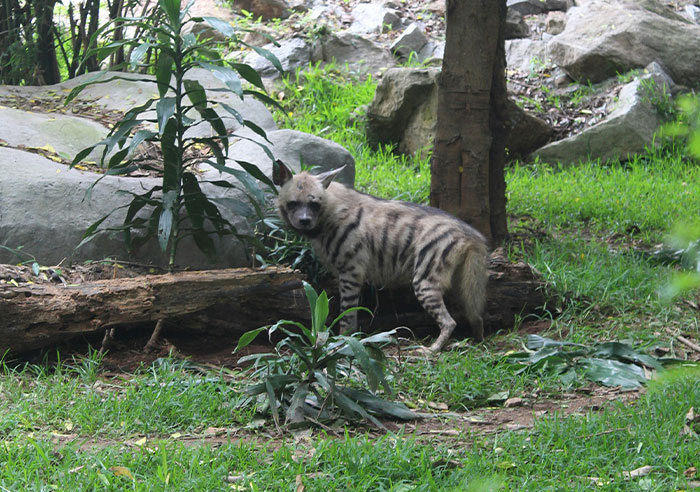
Image source: jlanger23, Rijin Raj/unsplash
#48
Fun fact bout the local zoo i learnt when i worked maintenance, there is a wolf enclosure. There is info bout the wolves, its maintained. “They are just shy/in their shelter atm” . There are no wolves, never was.

Image source: Ew_E50M, Dariia Lemesheva/unsplash
#49
I was in training to become a zookeeper for half a year before i got thrown out due to not working fast enough because of multiple surgeries i had before starting the job. Had to have the surgerys due to a disabilty. After the surgeries i was in immense pain which is why i wasn´t fast enough. But that´s enough of me.
TenPointList of things to avoid at a zoo or just nice to know:
1. Don´t touch the penguins.Their beaks are made to catch tiny slippery fish, at high speeds, underwater, and to never let go of the fish. If they don´t pick your finger straight of they´ll mutilate it.
2. If you´re sick please don´t go the monkeys. We had a trainee who had a mild case of the flu when she worked with the monkeys. 6 were gone 5 days later. This virus doesn´t only affect humans.
3. Don´t bond to animals like goats, guinea pigs, rabbits, sheep and such in case there are tigers lions and such at the same zoo. Otherwise you´ll one day look for your friend and you´ll not find them. Zoos feed some of their animals to some of the other animals.
4. Goats are the most dangerous creatures in any zoo. Period. When i went in the goat enclosure to feed the horned bastards they regularly ran me over and nearly trampled me. I am 6´4 and over 200 pounds. There have been horses that didn´t manage to bring me down but these ones did.
5 .Speaking about horses and the like: I once had a pony escape. Again remember my size and weight: I tried to push it back into the enclosure and the thing just casually walked forward, pushing me with it, as if i wasn´t there. Ponys are strong.
6 .Hutiacongas will squeeze trough the tightest gap when you try to clean their cage, and never return.
If someone asks if you lost some, the answer is no sir.
7 .Lamas are not as bad as people make them out to be. Just be as pissy as they are and they´ll love you. And if they don`t: Watch out, they kick sideways.
8. If after you´re done with your shift and are in regular clothes you´re looking for something to do that evening, just go to the tiger enclosure and find a hot girl admiring the cats. Tell her the names of them and what their personalitys are like. Then reveral that you are a zookeeper. I just got you a date you owe me one.
(Seriously, this worked 7 times in the 6 months i was there)
9. Seals are smarter than you´d think. We had a trick where we would throw a ball and the seal, chris, would have to bring it back to get a fish. One night he found out where we store these, and kicked em all in the pool. Took us a whole bucket of fish to get them back.
10.When you go around feeding the lemurs in their free roaming enclosure and they jump on you and use you as a bus and put their bushy tails around your neck- That´s the type of stuff why zookeepers do it. The side kicking lama, the finger ripping penguin, the extremely hard labor the constant smell.. It´s all worth it in moments like these.
Support your local zoos, guys. Every single one of them needs every voluntary helper they can get.
Image source: anon
#50
The big cats eat horse meat and the toads get fed ‘pinkies’ which are baby mice right after they are born.
Image source: spartan1977
#51
Was a zookeeper for a while and now work exclusively with non human primates. It’s not a “dirty” secret like OP was asking for, but wanted to chime in and say please don’t berate keepers because you don’t agree with zoos.
We almost all went to college for animals, we love them far more than you most likely, and it’s really disheartening to be trying your best to make sure your animals are comfortable and happy only to have some housewife who donated to PETA like 2 years ago tell you that you’re a piece of trash. We need responsible zoos for wildlife donations since the vast majority of “animal rights activists” don’t do anything to actually help animals. If you have a problem with the way an animal is being treated, report it to the APHIS immediately, don’t berate someone who has dedicated their lives to helping animals because it makes you feel special.
Image source: anon
#52
Not a zookeeper but do animal cognition research in zoos. Biggest thing i learned was that many zookeepers LOVE their animals, that the association of zoos and aquariums (AZA) has really high standards for care, and that many species have a nationwide breeding program. So that new baby chimp you see at the zoo? That was planned far in advance, the genetic variation between parents and within the social group was carefully calculated, and there may have even been a swap out of another animal to make space for the baby.
Basically, all that stuff about zoos being “sad” and “unethical” are the exception not the rule. Good zoos are there to conserve, protect, and make sure that their animals are healthy both physically and cognitively.
Image source: PiagetsPosse
#53
Not a zookeeper per se but I did frequent the LA zoo quite frequently between 2012-2014. The apes would often 69 each other after hours and the zookeepers would sometimes have to do a quick taze to the male’s ball sacks if the activities were prolonged.
Image source: pighalf
#54
Not a zookeeper, but someone who has designed equipment and caging for zoos. I was told many horror stories how some animals would get hurt because of trying to find ways out of their caging. They can range from really stupid to incredibly brilliant.
Had to replace a giraffe indoor pen. The previous one had vertical bars, think old jail cell bars. A bull giraffe stuck his head out then turned and went back in to the side to see what’s behind him. He freaked out and essentially hung himself. So we couldn’t use vertical bars that they could stick their head through.
Witnessed a silverback gorilla having a bad day. He seemed tired of the crowd and put a box on his head to make the world go away. People kept watching, he kept getting annoyed and finally threw the box off, charged us and pounded on the glass. I’m well aware that glass can take several shots from a .50 cal. rifle. But the explosive bang from the gorilla hitting the glass was insane, and terrified everyone.
Ostriches run on instinct primarily. I designed a cage for the vet. to treat them. It was entirely enclosed and had multiple small doors all around the cage. The reason is the vet told me about an instance where an ostrich got its foot cut and needed stitches. They got the bird in the cage and one vet fed bird and the other stitched up the cut. No anesthesia, just a diversion. The bird just kept eating and didn’t care about getting the stitches.
In a different zoo they needed to replace the caging of a very large bird of prey. I don’t remember the species, but I do remember seeing what it’s claws did to the aluminum tubing cage they kept it in. The aluminum was shredded, and whoever was on the other side was either going to have a bad day or get what they deserved for pissing off this bird. I of course went with stainless steel heavy gauge rod for the cage. The shop hated all the welding but in the end the cage was way nicer and stronger than the old one.
I didn’t get to travel much with the installation crew but I was in the shop supervising the building of caging. There were many times I had to have things rewelded or redone because of safety and Q.C. issues. Remember when you visit a zoo, that often times your life is depending on someone that wasn’t qualified, underpaid, and overworked. Whenever I visit a zoo, I look at the structure design and how it was put together. Too many times I see welds that are of poor quality and barely hold the structure in place let alone stop something big and heavy that’s pissed off..
Edit: Thanks for all the rewards. I don’t work in a zoological field anymore but I’m happy to answer questions.
Image source: DisGruntledDraftsman
#55
Not a Zoo but I worked at a local science centre as a part time guide, and one of our most popular exhibit was this incubator with baby chicks. We were told to tell visitors that the older baby chicks would be sent to schools as classroom pets or to the petting zoo.
In reality, we did sent the chicks to the Zoo… As live animal feed for the snakes and other carnviores.
Image source: dyslexic_draws
 Follow Us
Follow Us





